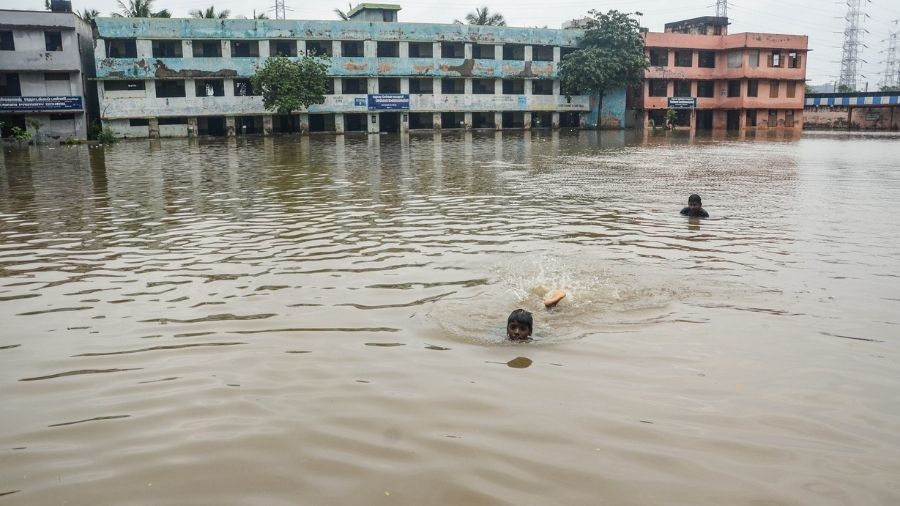Chennai and the rest of Tamil Nadu experienced massive floods in November 2015. The Conference of Parties on climate change had taken place in Paris that year. In a tragic coincidence, Tamil Nadu suffered torrential rain, flood, deaths and loss of property around the time CoP26 took place in Glasgow. In Paris, leaders from different parts of the world referred to the Chennai flood as a grim reminder to mankind to take urgent steps to confront the recurring disasters arising out of unsustainable human activities.
Commentators have said that Tamil Nadu and Chennai did not learn anything from the 2015 disaster. Real estate business, driven by unrestrained commercial greed, has led to encroachment on and altering of water bodies. Such remedial measures as protection of water bodies and of natural passages for the flow of rain water and the prevention of construction near rivers and lakes are not in place. The prioritization of predatory commercial interests over environmental concerns is the driving force behind such natural disasters.
Rain and floods in 21st-century Tamil Nadu bring to mind the thought-provoking article, “The Paris Havoc”, written by M.K. Gandhi in the Indian Opinion in 1910. It contained his deep reflections on the terrible flood that had hit Paris. Gandhi’s observations continue to resonate in the second decade of the 21st century marked by the threats of climate change and global warming.
Gandhi wrote, “The people of Paris had built the city to last forever.” But he sounded a cautionary note by observing, “Nature has given a warning that even the whole of Paris may be destroyed.” He noted that Parisians would not realize the futility of rebuilding palatial structures and said, “Engineers, in their conceit, will have more grandiose plans now and pour out money like water, forgetting and making others forget the deluge; such is the obsession of present-day civilisation.”
Gandhi’s thoughts, articulated 111 years ago, are considered central to the interrogation of humanity’s lifestyle in the age of the Anthropocene, which is understood as an era marked by the preponderant role played by humans in creating a huge carbon foot print and their domination of other species. Gandhi’s prophetic words — “Understand Nature’s purposes and ponder over them; all your ostentatious ways will lead you nowhere” — remain relevant to our time marked by alarming ecological degradation. What was evident in Gandhi’s thoughtful observations was his advocacy of a modest life eschewing excessive consumption. In the 1930s, Gandhi wrote, “Multiplication of wants and desires is such a sin that I make bold to say that if Europeans do not remodel their life they would die of their own comforts”. The enhancement of comfort in a life devoid of physical exercise and labour is a feature of the Anthropocene that was ushered in after the Industrial Revolution in Europe.
Gandhi’s reflections should spur the world to reduce emissions and make developed countries honour the principle of common but differentiated responsibilities to save the planet.
S.N. Sahu was Officer on Special Duty to the former president of India, K.R. Narayanan











